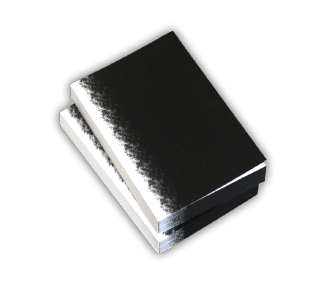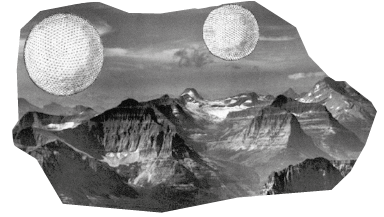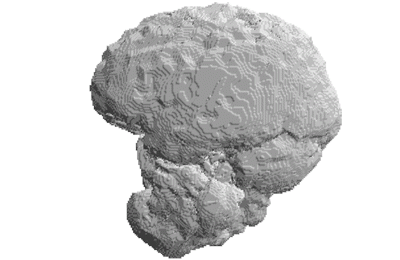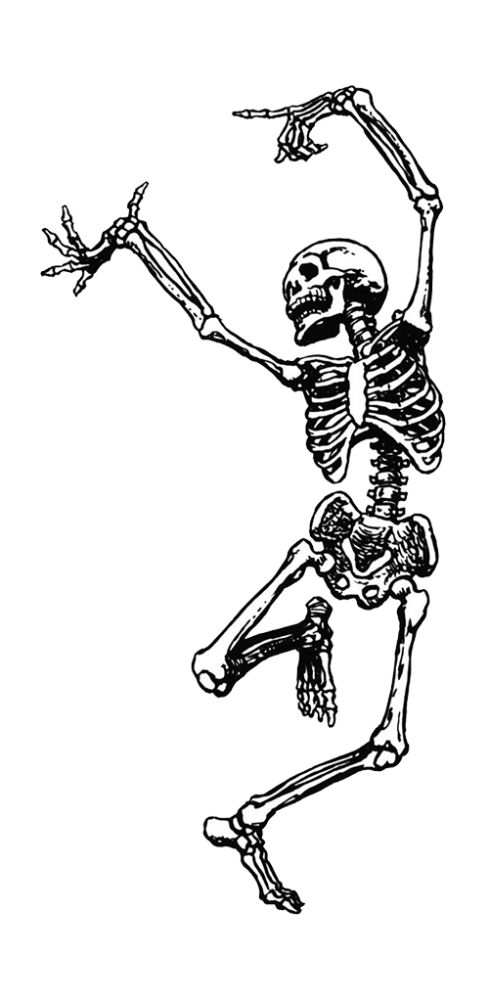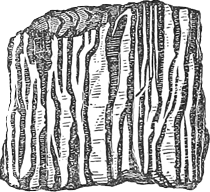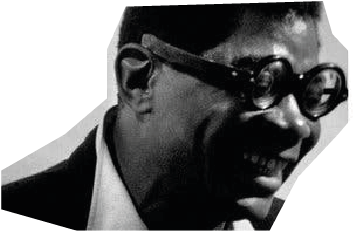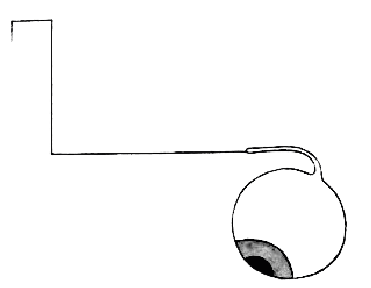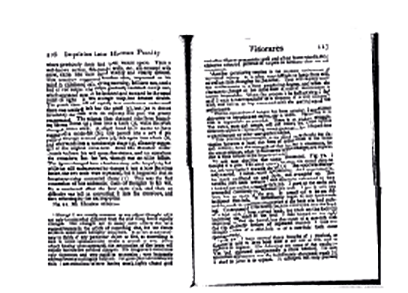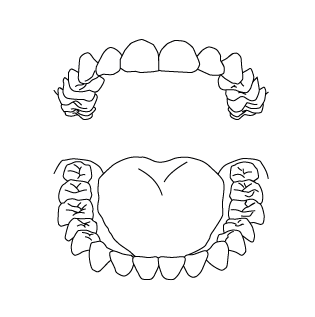How we murdered language

Lots of Gambians in Sweden, lots, lots, lots, lots. And in Gambia also a lot of Swedish too. This is why they come to interact, to speak Swedish and I see even a Swedish man who is also speaking Wolof very good. (laugher) So it is normal. Exchanges of languages, you know. Normal. He can also speak some, a bit of Afrikanisch when he likes, he feels the same.
Did you teach him?
I? Yes, sometimes, even. Sometimes we hear other words. When you recognise them you know, even if you don’t know the meaning. But you can cut off this word and say: Hey, this is also a word. Egal which word you think of, egal which word you think it is a language. Eh, egal which word you say it is a language.
Is it..?
No, you don’t know what is a language! If you speak anything from you mouth it could be a language. It could be a language.
You mean? Because it comes out of the mouth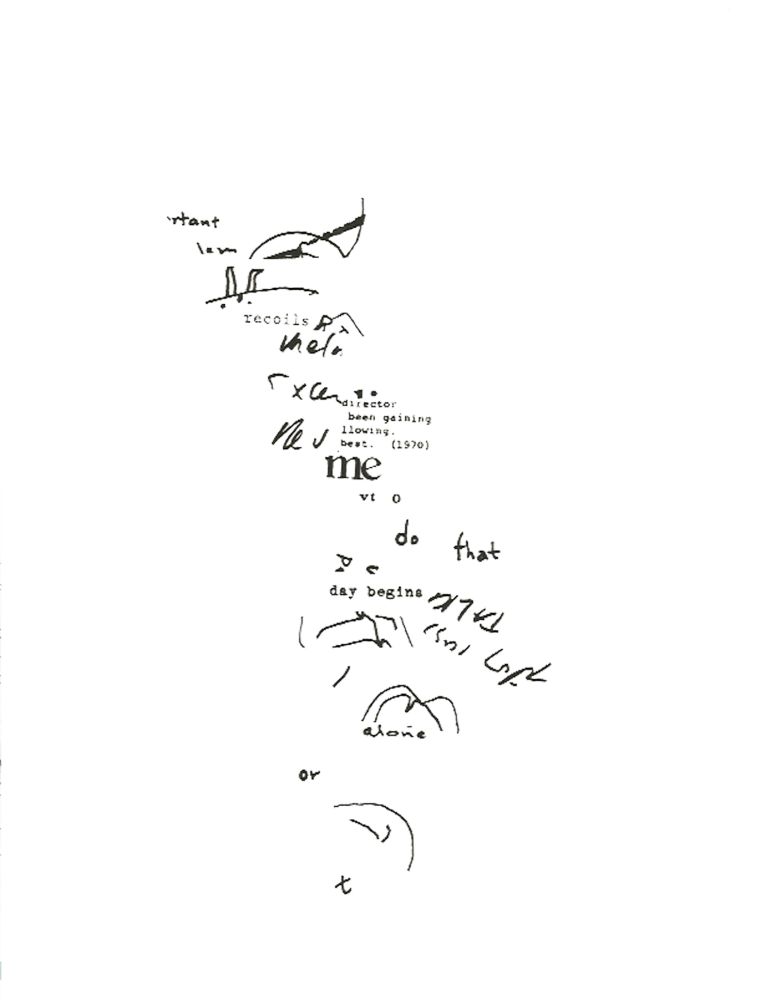 ..?
..?
You know how many languages do we have? You can not..
You cannot count.
You cannot count. So this is why anything you say it could be a language to somebody. Maybe you would not know, I would not know, but it is a language to somebody.
It is true, maybe you are right.
Maybe not! But just think also what I’m just telling you. You may not know I may not know, like for example some things that are similar to german and english.
Yeah
Look . In German you sometimes say the word sorry. Sorry is not German.
. In German you sometimes say the word sorry. Sorry is not German.
Yeah, that’s true but we use so many English words.
More, just wait. You use “sorry” but it is not a German word, but trotzdem you use it and in any sentence you use “sorry” it fit because straight somebody will know “sorry” but instead you can say Entschuldigung, but you don’t say it but you make it kurz to say “sorry”, then “sorry” everybody understand that. Yeah.
Yeah
Yeah so you see. (Laughter) Maybe you say another word again. It is so similar to other languages but it has different meaning.
Tell me an example
Aaah zum Beispiel, we say in German Ackern. Work. In Wolof you know when you say ackern to somebody it is when he is making his body like this. You call it ackern. You see the unterschiedlich? That is Afrikanisch and this is Deutsch.
Really, I didn’t know.
So you see. I say anything you may think of it could be a language to somebody. Because you can not say it doesn’t exist.
Yeah
Things you know and things you don’t know all exist. (laughter)
Transcription of conversation at Rote Rose, Berlin, 18 Jan 2017.

How we confounded a bar-goer who argued by signs

Then, with everyone attending and listening in perfect silence, a bar-goer raised his two hands separately high in the air, clenching all the tips of his fingers in the form of that is known in the language of Chinon as the hen’s arse, and stuck the nails of one against the other four times. Then he opened them and struck the one with the flat of the other, making a sharp noise. Next, clenching them again, as before, he struck twice more and, after opening them, yet another four times. The he joined them afresh and laid them one beside the other, as if offering a devout prayers to God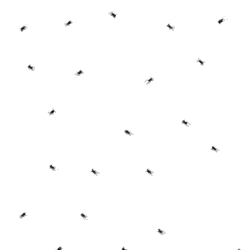 .
.
Suddenly we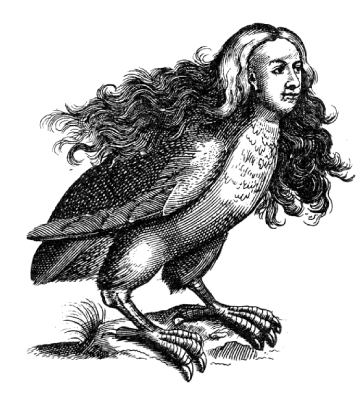 lifted our right hands in the air , and placed our thumbs inside our right nostrils, holding our four fingers stretched out and arranged in their natural order, parallel to the tips of our noses
lifted our right hands in the air , and placed our thumbs inside our right nostrils, holding our four fingers stretched out and arranged in their natural order, parallel to the tips of our noses , shutting our left eyes entirely and winking wit the rights, at the same time deeply depressing our eyebrows and lids. Then we raised our left hands, widely stretching and extending our four fingers and elevating the thumbs, and held them in a line directly continuous with that of the rights, the distance between the two being two and a quarter feet. This done, we lowered both hands toward the ground in the same attitude, and finally held them half way up, as if aimed straight at the bar-goer’s nose.
‘And if Mercury…’ said the bar-goer.
upon which we interrupted him by saying: ‘You have spoken, mask.’
, shutting our left eyes entirely and winking wit the rights, at the same time deeply depressing our eyebrows and lids. Then we raised our left hands, widely stretching and extending our four fingers and elevating the thumbs, and held them in a line directly continuous with that of the rights, the distance between the two being two and a quarter feet. This done, we lowered both hands toward the ground in the same attitude, and finally held them half way up, as if aimed straight at the bar-goer’s nose.
‘And if Mercury…’ said the bar-goer.
upon which we interrupted him by saying: ‘You have spoken, mask.’
Then the bar-goer made this sign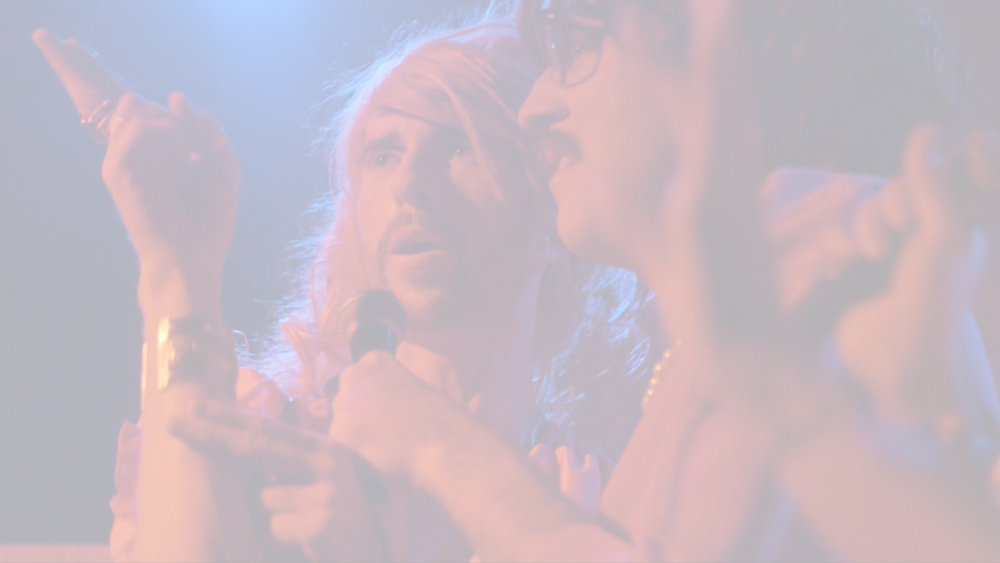 : he raised his left hand, wide open, high into the air, then closed the four fingers into his fist and placed his extended thumb on the tip of his nose. Next he suddenly lifted his right hand, wide-open, and lowered it, still open, joining his thumb to the place closed by the little finger of his left hand. After this, he waggled the four fingers of that hand slowly in the air. Then, in reverse, he did with the right what he had done with the left, and with the left what he had done with the right.
: he raised his left hand, wide open, high into the air, then closed the four fingers into his fist and placed his extended thumb on the tip of his nose. Next he suddenly lifted his right hand, wide-open, and lowered it, still open, joining his thumb to the place closed by the little finger of his left hand. After this, he waggled the four fingers of that hand slowly in the air. Then, in reverse, he did with the right what he had done with the left, and with the left what he had done with the right.
Not at all astonished by this, we raised our thrice mighty fanny packs into the air with our left hands, and with our rights drew from them our keys, which we placed symmetrically between the fingers of those hands. These we struck together, making the sort of noise that lepers of Brittany once made with their clappers—but it sounded better and more harmonious. At the same time all the while looking at the bar-goer.
The bar-goer was not alarmed by this and, raising both his hands aloft, held them in such a way as to close his three master fingers in his hands aloft, held them in such a way as to close his three master fingers in his fist and poke his thumbs between his index and middle fingers, with his little fingers extended at full length. In this attitude he presented them towards us, then put them together in such a way that the right thumb touched the left, and the left little finger touched the right.
Whereupon we silently raised our hands and made this sign: We put the nails of our left-hands forefingers on to that of the thumbs, making as it were rings in the space between them and clenched all the fingers of our rights into our fists except the fore-fingers, which we repeatedly thrust in and drew out of the spaces between the two others of our before-mentioned left hands. Then we stretched the fore and middle fingers of our rights, keeping them as far apart as possible, and to the corners of our led eyes, extending our whole hands like the wings of a bird or the fins of a fish, and flapping them very saintly this way and that, afterwards repeating the action with our rights at the corners of our right eyes.
The bar-goer began tremble and grow pale, and made us this sign: With the middle finger of his right hand he struck the muscle of the palm beneath the thumb, then put the forefinger of his right hand into a ring formed with his left; only, unlike us, he put it in from below, not from above.
Then we struck one hand against the other and blew in our palms. After which we once more thrust the forefingers of our right hands into the rings made by our lefts, pushing them in and drawing them out several times. Then we stuck out our chin and looked intently at the second bar-goer. By which the spectators, who understood nothing of these signs, realised that we were silently asking that bar goer: ‘What do you mean by that?’ The bar-goer now began to sweat great drops, and had all the appearance of a man rapt in high contemplation. Then he got an idea, and put all the nails of his left hand against those of his right, opening his fingers in a semi-circular fashion, and raised his hands as high as he could in this attitude.
Upon this we suddenly put the thumbs of our right hands beneath our jaws, and the forefingers of those hands in the rings of the lefts; and at this point made a most melodious noise with our teeth, gnashing our lower jaws against the uppers.
The bar-goer got up in great alarm, but as he did so let a great baker’s fart—for the bran followed it—pissed very strong vinegar, and stank like the devils. Upon which the spectators began to hold their noses, since he was shitting himself with anguish. Then he raised his right hand, clenching it in such a fashion as to bring the ends of all his fingers together, and placed his left hand quite flat upon his chest.
Upon this we drew our fanny packs, holding them aloft with our left hand; and with our rights, we took out an orange each and threw them seven times into the air. The eight time we covered them with our right fists, holding them quite calmly aloft. Then we began to shake our fine fanny packs, displaying them before the bar-goer.
After this, the bar-goer began to puff up his both cheeks like a bagpiper, and blew as if he were blowing up a pig’s bladder. Whereupon we put one finger of our right hands up our arse-hole, and sucked in air with our mouths as a person does when eating oyster in the shell or supping broth. This done, we slightly opened our mouths and struck them with the flats of our right hands, making a great deep noise, which seemed to come from the surface of the diaphragm by the way of the trachean artery; and this we did sixteen times. But the bar-goer kept on puffing like a goose.
Then we put the forefingers of our right hands into our mouths, sucking them very hard with our cheek-muscles, Next we drew them out and, as we did so, made a great noise, as when little boys and girls fire turnip pellets out of guns made of elderwood; and this we did nine times. Whereat the bar-goer cried out: ‘Ha, the great secret! They have put their hands in up to the elbows,’ and drew out a dagger which he wore, holding it downwards.
At that we took our fanny packs and shook them as hard as we could against our thighs. Then we put both our hands, clenched like cockscombs, on top of our heads, sticking out our tongues as far as we could, and rolling our eyes in our heads like a dying nanny-goat.
‘Ha, I understand.’ said the bar-goer, ‘but what?’ and as he did so made this sign: He put the handle of his dagger against his chest, and placed the flat of his hand upon the point, slightly revolving the tips of his fingers.
Upon this we bent our heads towards the left and put our little fingers in our right ears, pointing our thumbs upwards. The we crossed both our arms on our chests, coughing five times, and on the fifth cough struck our right feet on the ground. We next raised our left arms and, closing all our fingers into our fists, held our thumbs against our foreheads, striking our right hands six times against our chests.
But the bar-goer did not seem to be content with this. He put the thumb of his left hand to the tip of his nose, closing the rest of the same hand. Whereupon we places our two forefingers at each corner of our mouths, drawing them back as wide as we could and showing all our teeth. Then, with our thumbs, we drew down our eyelids very low, making rather an ugly grimace, or so it seemed to the spectators.
Text extract from Rabelais, François (ca 1494-1553): The histories of Gargantua and Pantagruel / y François Rabelais ; translated by J. M. Cohen (1955), pg. 234-237.


